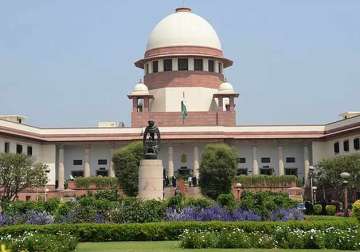New Delhi: The right to maintenance of a Hindu widow is not a “mere formality” but a spiritual and moral right that can be judicially enforced upon by claiming “absolute right” on the property given to her for sustaining herself, the Supreme Court has ruled.
A bench, headed by Justice M Y Eqbal, while upholding a Andhra Pradesh High Court verdict in favour of a widow who had transferred the property willed to her by her husband for her lifetime to a relative, said it was the woman's “absolute right” and she was free to bequeath the property.
“It is well settled that under the Hindu Law, the husband has got a personal obligation to maintain his wife and if he is possessed of properties, then his wife is entitled to a right to be maintained out of such properties.
“It is equally well settled that the claim of Hindu widow to be maintained is not a mere formality which is to be exercised as a matter of concession, grace or gratis but is a valuable, spiritual and moral right,” the bench, which also comprised Justice C Nagappan, said.
Referring to various judicial pronouncements, it said that though the right of a widow to be maintained does not create a charge on the property of her husband but she can certainly enforce her right by moving the Court for passing a decree for maintenance by creating a charge.
Discussing the details of the case at hand, the bench said, “In our opinion in whatever form a limited interest is created in her favour who was having a pre-existing right of maintenance, the same has become an absolute right by the operation of Section 14(1) of the Hindu Succession Act.”
The apex court's verdict came on an appeal filed by one Jupudy Pardha Sarathy, who had purchased a house from the son of Andhra Pradesh resident P Venkata Subba who had three wives.
Subba had in 1920 willed one of his properties to his third wife, Veeraraghavamma, who did not have a child.
Veeraraghavamma executed a will in 1971 and transferred the property to Pentapati Subba Rao. After her death in 1976, Subba's son from his second wife sold the property to Sarathy.
The trial court had upheld the sale to Sarathy saying the woman had a limited right to enjoy the property and after her death, it would pass on to the male heirs.
However, the Andhra Pradesh High Court had reversed the trial court findings, saying the case fell under Section 14(1) of the Hindu Succession Act and “Veeraghavamma became the absolute owner of the suit property and she had every right to bequeath the said property in favour of the first defendant P Subba Rao.”
Latest India News
